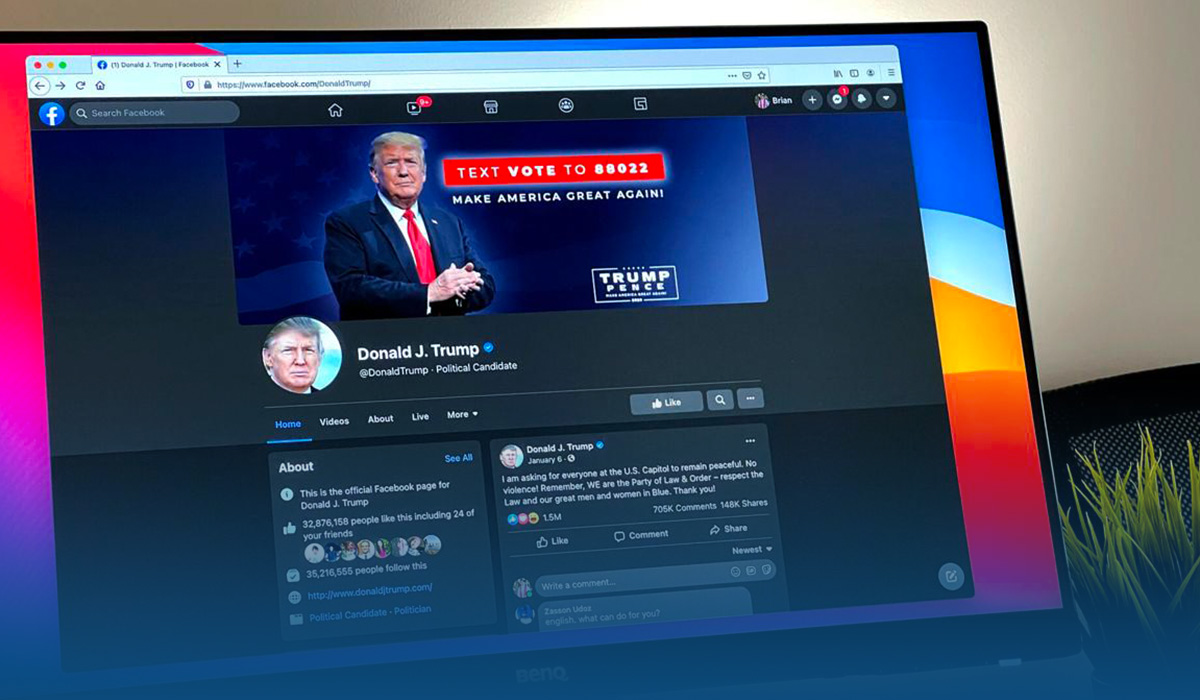

In other words, the data you created may be putting you out of a job. We’re seeing an immediate labor market shift with image generation, too.
:no_upscale()/cdn.vox-cdn.com/uploads/chorus_asset/file/19652230/Screen_Shot_2020_01_28_at_8.57.33_AM.png)
This has real consequences: OpenAI researchers studying the labor market impact of their language models estimated that approximately 80 percent of the US workforce could have at least 10 percent of their work tasks affected by the introduction of large language models (LLMs) like ChatGPT, while around 19 percent of workers may see at least half of their tasks impacted. The decisions the Oversight Board makes are not binding on Facebook, and if Facebook does not start enforcing its own civic integrity policies, there needs to be robust government action and enforcement that holds Facebook accountable.Every time you post a photo, respond on social media, make a website, or possibly even send an email, your data is scraped, stored, and used to train generative AI technology that can create text, audio, video, and images with just a few words. Despite the Oversight Board’s claim that it is a wholly independent body, that is simply not the case. Disinformation has led to voter suppression, violence, and weakened trust in our civic institutions. When the ruling is handed down, it is important to remember that no matter what the Oversight Board decides, these problems on Facebook and other platforms will still persist and continue to erode one of the most important foundations of our democracy. The Oversight Board is set to rule on Trump’s case by April. Facebook should have banned Trump long ago because he repeatedly violated the platform’s policies. The former President’s case is unique because of the sheer size of his following and his status, but he is the symptom disinformation and hate speech Facebook and other platforms have allowed to flourish unchecked.

In 2016, the Trump campaign used Facebook to targe t millions of Black Americans with deceptive ads to deter them from voting. Ĭommunities of color and other marginalized communities are often targets for political ads with voter suppression narratives.

For example, their political ads exemption allowed Trump and his supporters to run hundreds of ads spreading disproven claims about voter fraud. In addition to the lack of consistent enforcement, there are a number of significant loopholes in Facebook’s civic integrity policies.
#FACEBOOK OVERSIGHT ABOUTFACEBOOK OFFLINE#
Every single one of these posts contributed to undermining the integrity of our elections and the offline violence that occurred. Facebook even allowed “stop the steal” content to stay on its site 69 days after Election Day and instead of taking action immediately, the company waited until the content led to offline harm. Although Facebook banned calls for poll watching that use “militarized language,” it declined to remove a video of Donald Trump Jr. During the election, Trump constantly posted false information about mail-in voting, and Facebook did nothing despite their own policies about voter suppression. But the company has failed to consistently enforce these policies, giving Trump and other bad actors a greenlight to spread and amply disinformation about voting. Facebook has civic integrity and content moderation policies in place that prohibit attempts to suppress voting and undermine the integrity of our elections. Our members told the Oversight Board to keep Trump banned, but also expressed their concern about Facebook’s failure to enforce its own civic integrity and content moderation policies.īut Facebook should not hide behind whatever decision the Oversight Board ultimately makes. Given the lack of real power the Oversight Board has to enforce its decisions and implement policies, it serves as nothing more than cover for Facebook’s lack of action.ĭespite the Oversight Board’s lack of transparency and limited comment period, over 35,000 Common Cause members (and thousands of other commenters) made their voices heard. Once a decision is sent to Facebook, the social media company is under no obligation to follow the decision, as it is not binding on the company. This undermines the ability for people impacted by a particular decision to meaningfully participate. For example, comments are subject to a two-page limit and not accepted in non-English languages. While the Oversight Board solicits public comments prior to making a decision, the process to submit comments is limited. The Oversight Board is nascent, and many of its internal procedures are still opaque.


 0 kommentar(er)
0 kommentar(er)
